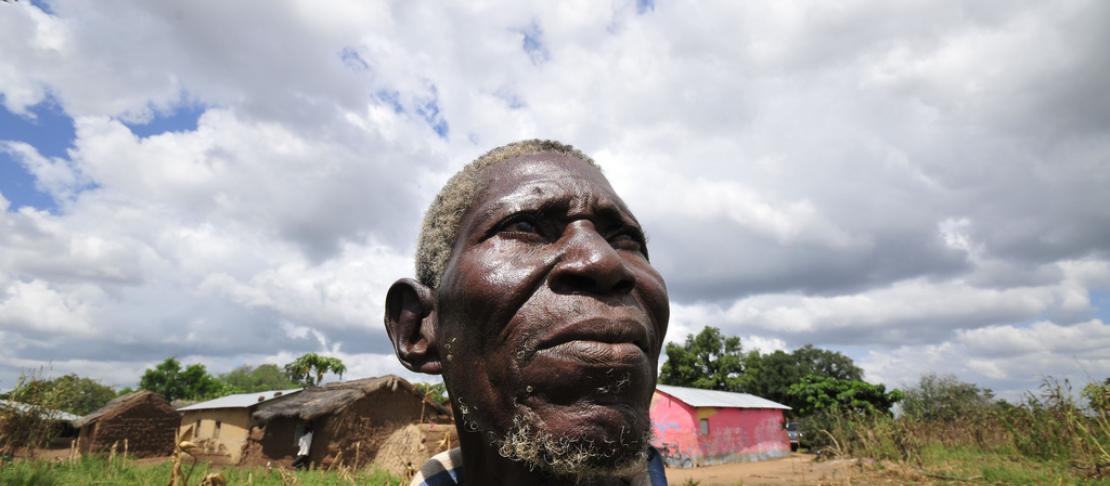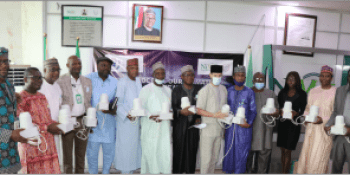Strengthening availability and use of climate services in Africa

A new initiative will support strengthening climate services in several African countries.
In an increasingly uncertain climate, farmers’ traditional knowledge on how to manage their farms may no longer be enough. CGIAR Research Program on Climate Change, Agriculture and Food Security (CCAFS) research has shown that with the right training, climate information services can help farmers better understand, anticipate and manage the risks that a variable and changing climate brings to their livelihoods.
As we seek solutions to today’s challenges in agriculture and food security in the context of a changing climate, development organizations are increasingly recognizing the key role of climate services in supporting both climate change adaptation and immediate development goals.
In a very promising step for efforts to bring climate adaptation support to those who need it most, on 21 November 2013 in Warsaw, the Government of Norway signed an agreement with the World Meteorological Organization (WMO) to fund the first national-scale implementation project under the UN Global Framework for Climate Services. As a core partner CCAFS is working to ensure that the “Climate Services Adaptation Programme in Africa” reaches smallholder farmers in the target countries of Tanzania and Malawi.
Read the full Press Release: Norway contributes US$ 10 million to support climate services for adaptation in Africa
CCAFS is one of the key partners in this project, working as one of six project consortium members along with the WMO, the Centre for International Climate and Environmental Research in Oslo (CICERO), International Federation of the Red Cross, the World Heath Organization and the World Food Programme, and serving on the project steering committee to guide project activities and implementation in Tanzania and Malawi between 2014-2016.
Supporting smallholder farmers with climate services means that national meteorological agencies must be able to provide tailored climate information—and that managers and decision-makers at many levels know how to use it.
The Climate Services Adaptation Programme in Africa will work both with national meteorological services to produce user-relevant climate information; and with national, regional, and local level stakeholders involved in health, food security, and disaster risk reduction to build their capacity to use climate information in decision-making.
Read: How can we reach a million farmers with climate services?
But information alone is not enough. To sustainably scale up climate services, national level frameworks must feed into regional and local networks and capabilities for communicating climate information to users. Building upon pilot project experience, CCAFS will lead efforts to develop and deliver climate services to community-level users, including training for intermediaries such as NGOs and agricultural extension to communicate climate services to farmers.
Dr. Arame Tall, the coordinator of CCAFS contribution to the Climate Services Adaptation Programme in Africa, highlighted the significance for efforts to scale up climate services:
Today is a great day for the Global Framework for Climate Services and for climate services the world over. With the signature of this project agreement, there is hope to support two countries in Africa - Tanzania and Malawi - to strengthen their national capability to design and scale up climate services, Arame Tall said.
The hope is that these climate services will not only be relevant enough to help millions farmers dependent on agriculture in country to better anticipate and prepare for increasing climate risks, but also to hopefully prevent adverse climate impacts on their farming incomes and family's livelihoods.
Arame continued saying: We have a unique and fantastic opportunity through this project to demonstrate that climate services that work can help advance the adaptation agenda, and support farmers to build their resilience to a changing climate at scale.
The project will kick off in February 2014 with launch events in Tanzania and Malawi.
CCAFS is working on many fronts to bring climate services to scale, including evaluation of the benefits for farmers; testing the use of information and communications technologies to reach farmers; and partnering with NGOs and agricultural extension to reach more than a million farmers in Tanzania.
Written by James Hansen, Arame Tall, and Alexa Jay, of the CCAFS research theme on climate risk management.



